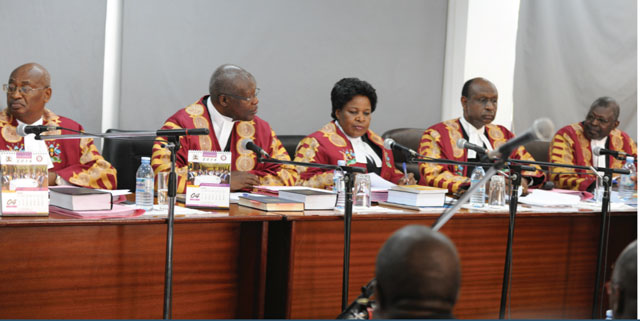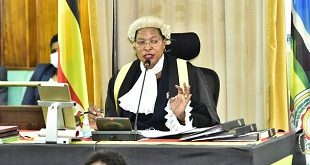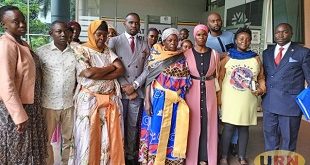
Kampala, Uganda | URN | A number of Civil Society Organisations (CSOs) have demanded a report from the Attorney General on implementation of the recommendations of the Supreme Court in the 2016 presidential election petition.
The Supreme Court on March 31, 2016 dismissed a petition by former prime minister Amama Mbabazi, challenging the February 2016 presidential election won by President Yoweri Museveni.
When the Supreme Court Coram issued its judgement in August 2016, it made a number of recommendations and tasked the Attorney General to report back on the progress of implementation within two years.
The Supreme Court recommendations included; increasing the number of number of days for filling a presidential election petition and disposing it, providing for use of oral evidence in hearing election petitions on top of affidavits, increasing time for holding fresh presidential elections if annulled and a law on use of technology in elections.
Other recommendations included; ensuring equal use of state media by both government and opposition candidates, prohibiting giving donations during campaigns and prohibiting public officials from participating in election campaigns.
The CSOs led by Citizens’ Coalition for Electoral Democracy in Uganda (CCEDU) say now is the time for the Attorney General to update Ugandans on the implementation of the recommendations. They are also demanding Parliament and the Executive to cooperate in ensuring that the recommendations are implemented.
Michael Aboneka, from Foundation for Human Rights Initiative, who read the statement on behalf of the CSOs at CCEEDU offices today, said parliament and cabinet should not wait for the next election cycle to set in and start arguing that it’s late to initiate electoral reforms.
CCEEDU and Foundation for Human Rights Initiative Communication and Advocacy Manager, Charity Ahimbisibwe, said the CSOs will launch a protracted advocacy campaign calling for specifically enactment of a law stipulating how technology can be used in elections and prohibition of public officials’ participation in electioneering.
She said technology is a vital component of managing elections and if used properly, it can broaden franchise, modernise elections and more importantly reduce election costs.
CCEDU Coordinator Crispy Kaheru says if over 70 percent of Ugandans have access to mobile phones, this infrastructure can be used to organise elections for instance in registering, voting and accessing election results.
Kaheru argues that Uganda needs to think creatively rather than waiting for another country to take the lead in the use of mobile phones to manage elections. The use of technology, he says, can cut down election costs by over 60 percent.
 The Independent Uganda: You get the Truth we Pay the Price
The Independent Uganda: You get the Truth we Pay the Price


